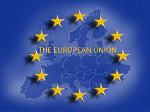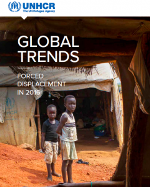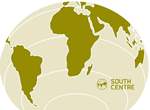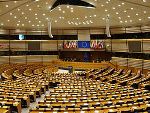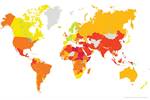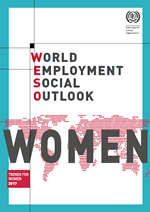Other news
Published on Wed, 2017-10-11 12:39
Tax dodging happens because wealthy nations let it. It’s time for poorer countries to shape the rules. Tax dodging and illicit financial flows began to emerge as a major source of concern for civil society organisations around the year 2000. Since then, revelations that big multinationals such as Google and Starbucks have not paid their fair share of taxes – even in rich nations – have gone from a trickle to a flood. It is now common knowledge that tax dodging affects both industrialised and developing countries alike. Thankfully, tax now takes high priority on regional, national and multilateral policy agendas – a significant step forward. But we still haven’t found a global solution to this most global of problems. International tax rules are in dire need of reform, but to be effective, developing countries need to be involved in shaping them. |
Published on Thu, 2017-08-31 13:36
Growing global interdependence poses greater challenges to policymakers on a wide range of issues and for countries at all levels of development. Yet, the new mechanisms and arrangements put in place over the past four decades have not been adequate to the growing challenges of coherence and coordination of global economic policymaking. Recent financial crises have exposed some such gaps and weaknesses. |
Published on Fri, 2017-06-30 18:06
While commending the institutions of the European Union for their gradual achievements in the field of safeguards and remedies over sanctions, these steps need to be further reinforced, a United Nations human rights expert has said. This recommendation has come in an end-of-mission statement by Mr Idriss Jazairy, UN Special Rapporteur on the negative impact of unilateral coercive measures on the enjoyment of human rights. |
Published on Fri, 2017-06-23 11:29
On the 19th of June the UN Refugee Agency (UNHCR) released its annual report on “Global Trends on forced displacement” for 2016. The report collects the yearly data on the different categories of people affected by forced displacement: refugees, returned refugees, asylum seekers, Internal Displaced People (IDPs), returned IDPs, stateless people and other persons of concern to UNHCR. Forced displacement worldwide at its highest in decades. UNHCR’s annual Global Trends report says an unprecedented 65.6 million people were uprooted from their homes by conflict and persecution at the end of 2016, which is an increase of 300,000 from 2015. This is a record number, higher than the previous record set in 2015. The distribution of this number among the categories of the report shows that that 22.5 million are refugees, 40.3 million are IDPs, 2.8 million are asylum seekers, and finally 3.2 million reported stateless people – however, the total number of stateless people is estimated to be 10 million. |
Published on Fri, 2017-06-23 10:40
States should control corporations across national borders to protect communities from the negative impacts of their activities, UN human rights experts have said in an authoritative new guidance * on the Obligations of States parties to the International Covenant on Economic, Social and Cultural Rights (CESCR) in the context of business activities. “States should regulate corporations that are domiciled in their territory and/or jurisdiction. This refers to corporations which have their statutory seat, central administration or principal place of business on their national territory,” the experts of the UN Committee on Economic, Social and Cultural rights say in the guidance*, officially termed the General Comment, published on June 23rd. |
Published on Fri, 2017-06-23 10:09
The world economy has not still recovered from the effects of the financial crisis that began almost a decade ago first in the US and then in Europe. Policy response to the crisis, the combination of fiscal restraint and ultra-easy monetary policy, has not only failed to bring about a robust recovery but has also aggravated systemic problems in the global economy, notably inequality and chronic demand gap, on the one hand, and financial fragility, on the other. It has generated strong destabilizing spillovers to the Global South. Major emerging economies that were expected a few years ago to become global locomotives have not only lost their momentum, but have also become highly vulnerable to trade and financial shocks. |
Published on Thu, 2017-06-15 22:26
Last June 12 two committees of the European Parliament voted on new tax transparency requirements for multinational corporations. While the outcome would strengthen the text proposed by the European Commission, a proposal by the Liberals and Conservatives introduced a dangerous loophole. The issue will now be sent to the plenary of the European Parliament for a final decision. "Until now, the European Parliament has been in favour of letting the public know what multinational corporations pay in taxes and where they do business,” said Tove Maria Ryding, Tax Coordinator at Eurodad, the European Network on Debt and Development. “But tonight, at the expense of the rest of society, the Liberals and Conservatives decided to protect large multinational tax cheats by introducing a loophole, through which they can continue dodging taxes. |
Published on Thu, 2017-06-15 22:07
The number of countries experiencing physical violence and threats against workers has risen by 10 percent in just one year, according to the annual ITUC Global Rights Index. Attacks on union members have been documented in fifty-nine countries, fuelling growing anxiety about jobs and wages. The report shows that corporate interests are being put ahead of the interests of working people in the global economy, with 60 per cent of countries excluding whole categories of workers from labour law. |
Published on Thu, 2017-06-15 21:59
Closing the gender gap by 25 per cent by the year 2025 has the potential to boost global employment by 189 million and raise global GDP in 2025 by 3.9 per cent, or US$5.8 trillion, the International Labour Organisation (ILO) has said. In its World Employment and Social Outlook report released Wednesday, the ILO said that the achievement of such a goal could also unlock large potential tax revenues. For example, global tax revenue could increase by US$1.5 trillion given currently projected government revenue shares in GDP, most of it in emerging (US$990 billion) and developed countries (US$530 billion). "Consequently, policies promoting gender equality could be self-financing," it said. |
Published on Sat, 2017-06-10 08:18
Europe needs to do more to contribute to the 2030 Agenda on Sustainable Development that it supports and helped shape. This is the main conclusion of "From Vision to Action," a book compiling innovative research by young authors on a variety of issues, from taxes to energy, trade, and education. This publication is a first product of the Progressive Lab for Sustainable Development, a joint initiative of the Foundation for European Progressive Studies, the Socialists & Democrats group at the European Parliament and the SOLIDAR network. The Lab argues that the 2030 Agenda "could potentially turn the current unsustainable ‘growth-at-any-cost’ economic model into a sustainable one based on the clear supremacy of human rights over the economic privileges of vested interest groups. This will require measures and policies that tackle the current major global challenges such as growing inequalities; the biased trade and investment strategies and growing corporates’ power; the shrinking funding for development cooperation." |
SUSCRIBE TO OUR NEWSLETTER



